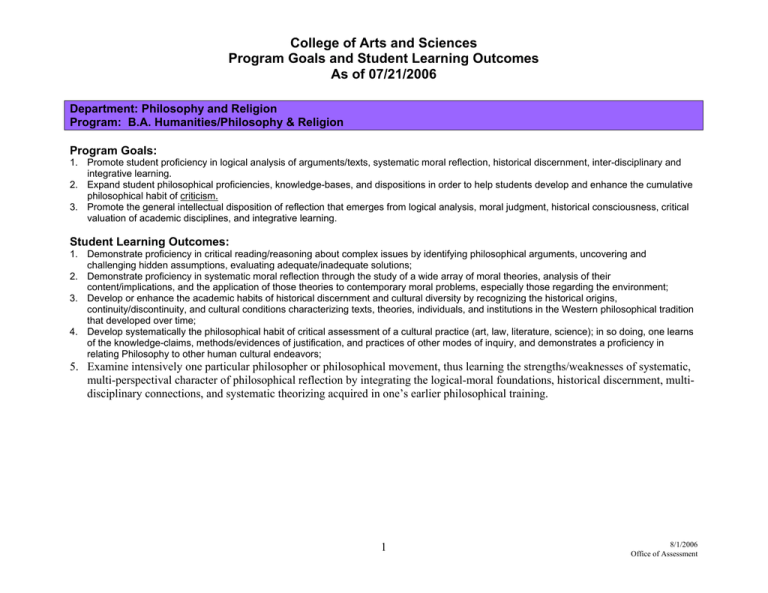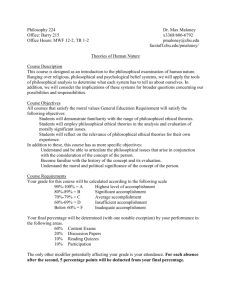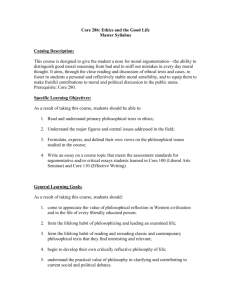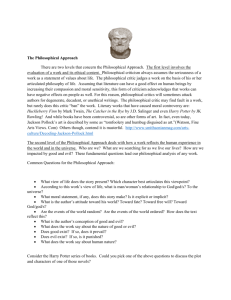College of Arts and Sciences Program Goals and Student Learning Outcomes
advertisement

College of Arts and Sciences Program Goals and Student Learning Outcomes As of 07/21/2006 Department: Philosophy and Religion Program: B.A. Humanities/Philosophy & Religion Program Goals: 1. Promote student proficiency in logical analysis of arguments/texts, systematic moral reflection, historical discernment, inter-disciplinary and integrative learning. 2. Expand student philosophical proficiencies, knowledge-bases, and dispositions in order to help students develop and enhance the cumulative philosophical habit of criticism. 3. Promote the general intellectual disposition of reflection that emerges from logical analysis, moral judgment, historical consciousness, critical valuation of academic disciplines, and integrative learning. Student Learning Outcomes: 1. Demonstrate proficiency in critical reading/reasoning about complex issues by identifying philosophical arguments, uncovering and challenging hidden assumptions, evaluating adequate/inadequate solutions; 2. Demonstrate proficiency in systematic moral reflection through the study of a wide array of moral theories, analysis of their content/implications, and the application of those theories to contemporary moral problems, especially those regarding the environment; 3. Develop or enhance the academic habits of historical discernment and cultural diversity by recognizing the historical origins, continuity/discontinuity, and cultural conditions characterizing texts, theories, individuals, and institutions in the Western philosophical tradition that developed over time; 4. Develop systematically the philosophical habit of critical assessment of a cultural practice (art, law, literature, science); in so doing, one learns of the knowledge-claims, methods/evidences of justification, and practices of other modes of inquiry, and demonstrates a proficiency in relating Philosophy to other human cultural endeavors; 5. Examine intensively one particular philosopher or philosophical movement, thus learning the strengths/weaknesses of systematic, multi-perspectival character of philosophical reflection by integrating the logical-moral foundations, historical discernment, multidisciplinary connections, and systematic theorizing acquired in one’s earlier philosophical training. 1 8/1/2006 Office of Assessment






